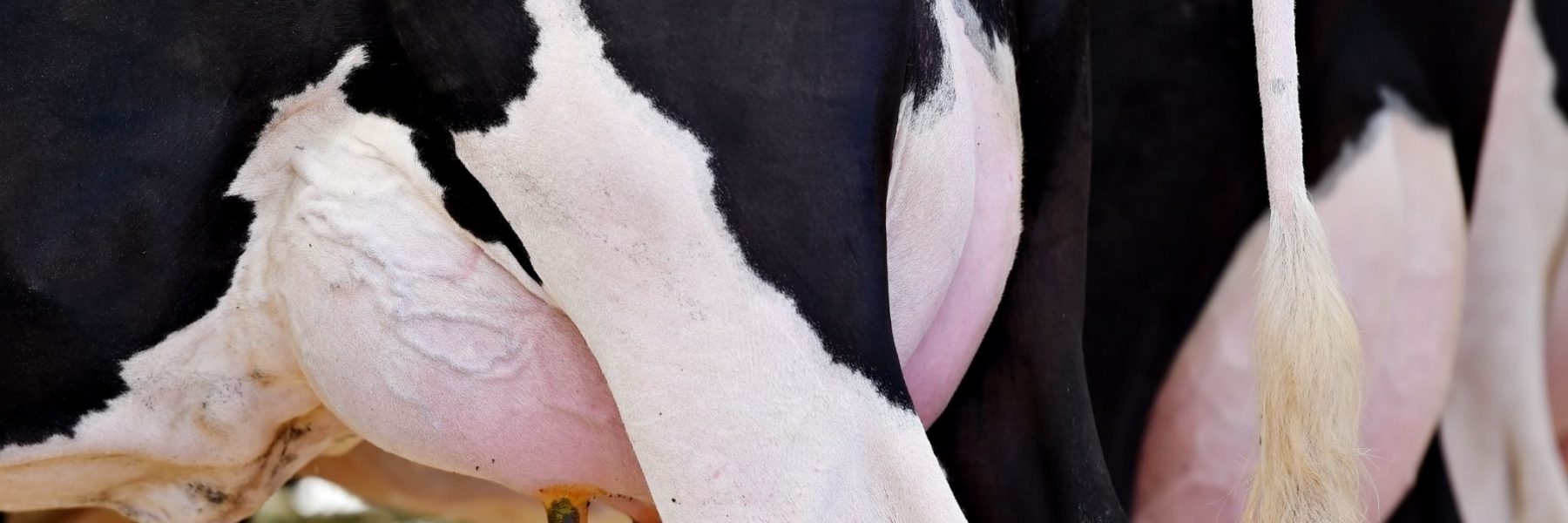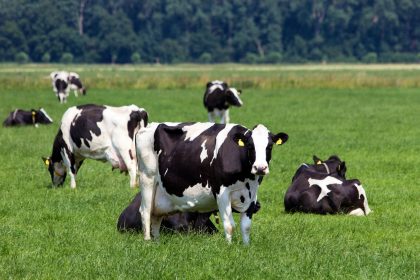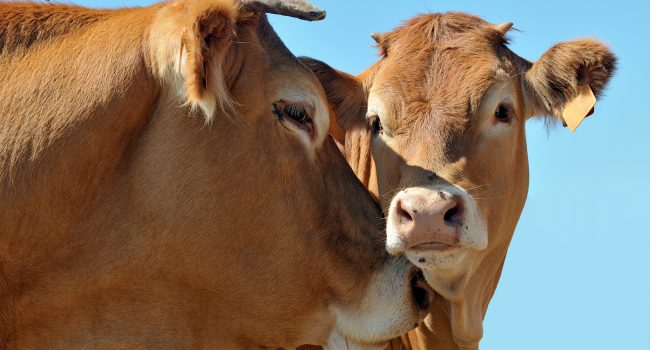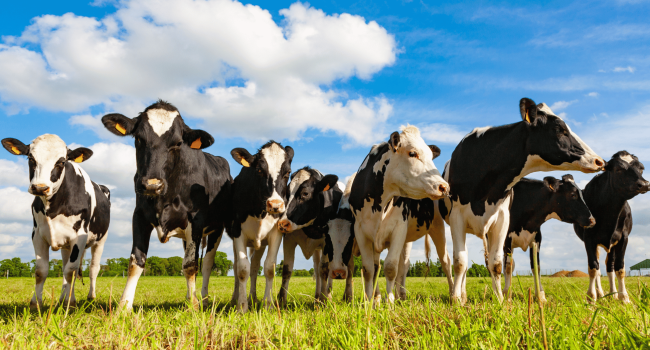The demedication challenge
One of the main challenges of reducing antibiotic use is to maintain the health of your animals and the competitiveness of your farm. The use of antibiotics in animal feed as growth promoters has been completely banned by the European Union since 2006.
In 2020 in China, adding antibiotics to feed was banned by Chinese Ministry of Agriculture. In February 2021, the Brazilian Ministry of Agriculture, Livestock and Supply (MAPA) has prohibited three growth promoters i.e. tylosin, tiamulin, and lincomycin, for swine production. To tackle this complex problem, a global and complete approach is essential. Four main technical problems have been identified for a medication reduction program in dairy production.
Technical problematics to address
Replacement of growth promoters
The dramatic increase in anti-microbials resistance worldwide has led to the ban of their use as growth promoters in many countries and to a higher demand for efficient and cost-effective alternatives. Cattle growth promoters are divided into several groups: antibiotics, ionophores, hormones and beta-agonists. Some of them are still allowed in some countries to improve feed efficiency and increase the growth rate of the animals. The key challenge is to ensure animals’ performances with a complete nutritional approach and more natural alternatives.
Respiratory diseases prevention
Respiratory diseases are very common and costly in ruminants caused by a range of factors, singly or in combination. It affects the lower respiratory tract i.e., lungs (pneumonia) or the upper respiratory tract (rhinitis, tracheitis, bronchitis). Respiratory diseases primary affect young ruminants and animals in the adaptation phase in feedlots and mostly occur in situations of environmental and physiological stress. The key challenge is to be able to bring preventive solutions and a global approach of the disease factors in order to limit the use of antibiotics.
Mastitis prevention
Mastitis is an infection of the udder by pathogens that enter through the teat sphincter. It triggers an inflammatory reaction associated with an influx of white blood cells (leukocytes) into the udders, increasing the number of somatic cells in the milk. Mastitis is still systematically treated with antibiotics and remains the leading cause of antibiotic use in dairy cows. The key challenge is the multifactorial causes of mastitis which requires farm management solutions in addition to products solutions.
Parasitism prevention
Many types of parasites (worms, coccidia etc.) can affect the animals and cause different diseases such as coccidiosis, cryptosporidiosis, babesiosis. Parasitism does not require the use of antibiotics but antiparasitic drugs causing also resistance issues. It mainly affects young animals as older ones have developed stronger immunity and are much less susceptible. A key challenge is a prevention approach allowing to reduce the use of chemical molecules with the objective to reduce induced resistance.
A global approach
Demedication remains a multifactorial strategy, on which products solutions alone cannot be efficient to obtain concrete results. Three main axes are identified to develop a global medication reduction program :
Nutrition strategy
It is primordial to first work on more precise nutrition to meet exactly the requirement of the animals. It will allow performance optimization and fewer metabolic disorders. Strong knowledge on ruminant requirements and a high expertise on formulation, ingredients and forages analysis are the key for this approach. Some digitals tools and formulation software are very helpful for accurate nutrition management. An audit can also be done on rations to better identify nutritional opportunities.
Farm management
A strong pillar for a successful demedication program is improving farm management (hygiene, building, feed bunk management, production data analysis…). Dedicated farm audits and specific procedures can be performed to get the best return on investment.
Products solutions
The withdraw of antibiotics can impaired animal health and productivity due to the increase of intestinal inflammation. The gastrointestinal tract is the most exposed surface of the organism and it is continuously subjected to potentially pathogenic microorganisms and toxins. Recent research has highlighted the role of inflammation in infectious diseases and has suggested that inflammation is involved in metabolic diseases as well (Bradford, 2019). Moreover, chronic inflammation consumes nutrients and energy to the detriment of zootechnical performances (including growth, reproduction, feed efficiency, and milk production). The modulation of inflammation has great potential in effective management of ruminant health, reducing the use of antibiotics, and contributing to performance.
Various solutions are available for a long time in the market but recent studies have been shown that active ingredients from plants extracts appear to be sustainable solutions. ADM’s R&D department developed POWERJET® a patented combination of three active molecules coming from two plants, recognized for their abilities to modulate intestinal mucosa inflammation and the associated oxidative stress.
Focus on plant extracts
A university trial conducted in Beauvais (France) allowed to evaluate the POWERJET® effect on inflammatory process. Human colon cells have been cultivated and then stimulated with a severe model of inflammation (cytokines cocktail). During the study Interleukins 8 secretion (IL-8) has been measured in order to reflect the level of the inflammation (pro-inflammatory markers).
Figure 1: Impact of POWERJET® on inflammatory process
As presented on the Figure 1, with inflammatory challenge, basal IL-8 secretion is increased (Control), meaning that the challenge is working. The combination of plants extracts (POWERJET®) significantly decreased the secretion of basal IL-8 compared to the control, proving its ability to limit the over-activation of the immune system after an inflammatory challenge.
A second study has been conducted to measure the anti-oxidant activity of POWERJET®. The trial was performed around the calving period, a specific period recognized as stressful for dairy cow and characterized by an increase of intestinal inflammation and oxidative stress.
The trial included a total of 25 Holstein dairy cows, which were divided into two groups. A control group (with a corn silage-based diet) with 12 animals and a test group of 13 animals received the plants extracts combination (incorporated in the concentrated feed three weeks before calving and during lactation). Blood samples were sampled on all the dairy cows of each group one week before calving and one week after calving, to measure the Super Oxide Dismutase (SOD), an enzyme whose activity is positively proportional to its anti-oxidant capacity.
Figure 2 : Effect of POWERJET® on SOD enzyme activity in the blood of dairy cows.
As presented on the Figure 2, a strong increase of SOD activity was observed and this demonstrates that the plant extracts combination reinforces the antioxidant capacity of the animals.
POWERJET® actions enable here animals to better face inflammatory and oxidative processes around sensitive and stressful periods.
Tackle the demedication challenge
Demedication is a complex challenge for livestock in general and should be faced with a global and holistic approach. Consumers are looking for more safe and suitable dairy products, and farmers should be assisted to implement this approach. ADM is addressing this challenge by offering a dedicated customized demedication program : P4L (Partner For Life) is for livestock animals and especially for dairy production, partnering to support its customers in this market move.




![[EN] BLOG What are the alternatives to antibiotics in ruminants](https://www.premix.adm.com/wp-content/uploads/2022/09/Cows-standing-in-a-stall-and-eating-hay_AdobeStock_417630862-scaled-650x350.jpeg)

